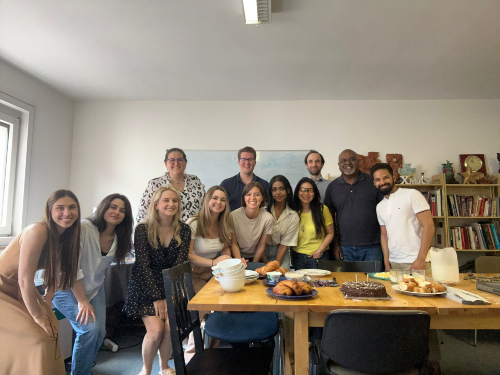IBJ: Advancing the Rule of Law Worldwide
In my second week, I learned a lot about the work of IBJ on a grand scale. IBJ was founded to promote the rule of law in the criminal justice process, particularly in the early stages where vulnerable persons often endure torture before they have access to a lawyer. It has been operating for over 20 years. As its successes have increased, so has the breadth of its programs. The principles of international law guarantee individuals the right to be free from torture, the right to competent legal representation, and the right to a fair trial; and IBJ works to defend these rights through country-specific programs throughout the world. Since the issues in each country are distinct, IBJ has formulated a general framework that can be tailored to specific pressing needs. The headquarters in Geneva primarily supports specific country programs through project managing and fundraising. The programs are implemented through local offices staffed with nationals who are attuned to the challenges facing the given country.
IBJ institutes its country programs through a four-pillared approach. First, working to gain early access to the accused—each program mobilizes public defenders and legal aid lawyers who can protect defendants from human rights abuses at the earliest opportunity. This is chiefly done through partnering with local bar associations and other organizations committed to providing public defense services. Second, cooperating with governments works to change the legal environment from the top-down. This objective involves round-table events where key stakeholders engage in dialogue to discuss barriers to justice and proposed solutions. Importantly, collaborating with governments increases IBJ's access and promotes an amenable environment in the region. The third pillar of IBJ's approach is raising rights awareness. By distributing educational pamphlets, mobilizing advocates to reach underserved populations, and publicly broadcasting information, the country programs empower individuals through education on legal rights. Fourth, capacity building—IBJ fosters a democratic justice community that can sustainably promote human rights. This objective involves conducting training programs for lawyers to increase their advocacy skills, equipping lawyers with resources through an online JusticeHub, and publishing country-specific defense manuals. Each country program also partners with civil society organizations to jointly increase their capacity for justice.
As a peak into a current project, this week IBJ Geneva finished a grant proposal to build upon its Cambodia program. This new program would specifically address the issue of "land grabbing"—the taking of land which locals are dependent upon for their livelihood through advantageous property law and manipulation. This issue has devastating environmental and cultural impacts, and there is presently no comparable program seeking to ameliorate it. The way IBJ seeks to adjust its Cambodia program to meet a critical need shows how its framework can be applied to diverse situations. Read more about the work of IBJ by exploring its website: https://www.ibj.org.
